 Welcome to the world of internal communication. Been in it for a while? Then I’d love your help to ensure these articles are useful for people who are just starting out.
Welcome to the world of internal communication. Been in it for a while? Then I’d love your help to ensure these articles are useful for people who are just starting out.
Following discussions with IC pros in my network, some of my clients and students, I’ve decided to write a guide to internal comms.
It was going to be one post, but I’ve received so many requests for things to include, that it will be a series.
If you want to learn about internal communication, sign up to an All Things IC Masterclass and I can teach you.
It’s not too late to let me know what you’d like to read about or offer an opinion. Do comment below, contact me or Tweet me @AllthingsIC.
Thank you to everyone who took part in my recent survey into How internal comms pros use social media. You can view the results and access the infographic here.
For part one of my guide, I’m going to highlight what it feels like when you first start out in internal communication, how it is defined and where you can look for information.
I began my IC career back in 2003 and recently wrote about the most important thing I’ve learned in internal communication as a guest article for the Institute of Internal Communication. (I’m going to be writing about industry associations in a future guide).
Rather than try and cast my mind back to how I felt in 2003, I thought I’d feature someone who has just started out in the field.
I tweeted what I was thinking of doing and heard back from Mairi McInnes, @IC_trends.
@AllthingsIC You should, yes! I’ve only been in the profession for 9 months and any help would be appreciated. I’d be happy to contribute!
— Int Comms trends (@IC_trends) October 3, 2013
Mairi (pictured) works as a Communications Consultant in Edinburgh, Scotland. After graduating from The University of Edinburgh in Politics, Mairi worked on the 2010 election campaign and interned with the John Smith Memorial Trust. I asked her to share her experiences so far of working as an internal comms professional and thank her for contributing.
What were your expectations when you first started out?
 Nine months ago I was drawn to work in internal communications (IC) on a secondment because the role was so varied. It was varied alright!
Nine months ago I was drawn to work in internal communications (IC) on a secondment because the role was so varied. It was varied alright!
Within the first six months I had worked on global engagement survey, several Sustainability campaigns, several announcements, introduced a Yammer pilot and supported a leadership conference.
If I’m honest, my expectations were low initially as I didn’t fully understand what internal communications was.
I don’t mind admitting this now as many people don’t – I find myself constantly having to explain what IC is and the definition is evolving all the time. Often people like the comparison to a PG ‘Thick of it’ – my boss is thankfully nothing like Malcolm Tucker! (For non-UK readers, you can see an overview of the programme here – Rachel).
Where can you find information about internal communication?
After leaving Uni and before becoming an internal communications consultant, I decided that in order to stand out (from the other grads of 2009 that graduated into a workforce that wasn’t hiring), I needed to get a professional qualification and enrolled for the Institute of Internal Communication (IoIC) foundation diploma in Internal Communications.
This was the perfect intro to the theory and practical elements of IC. It also introduced me to a group of equally passionate peers.
I love learning and after completing the diploma I felt a void from best/next practice, so I set up @IC_trends on Twitter. Twitter introduced me a abundance of resources, #CommsChat on a Monday night and of course Rachel @AllthingsIC and @theICcrowd.
I take inspiration from everything around me. I keep boards on Pinterest for ideas of visuals that I can use for campaigns. I network through various organisations such as Creative Scotland, IOIC, CIPR and most recently was in London for Social Media week.
What questions did you have at the start?
I think I’ll always have questions as I’m curious by nature. My advice to someone starting out would be to get a mentor with a IC background.
This has been invaluable to me. And if having a mentor isn’t practical, then use social media. When I need a little help I ask the Twittersphere and use hashtag #internalcomms – the ideas you’ll get can often be great.
What do internal communicators need to know when they start their career?
Before I chose my diploma, my manager at the time asked me to do some research on the different IC qualifications available.
I narrowed down my three options and talked her through which one I thought was best and why. I’m so glad I did this as it meant I found a course that was right for me and I could study and continue to work full-time.
It also set me up with a toolkit which I’ve tweaked slightly but still use today. One of the most valuable things I’ve learnt is I write better in a quiet space and get my best ideas when out of the office. Obviously this isn’t always practical but I encourage you to try it when you can!
Thank you Mairi for sharing your thoughts. What do you think about what she’s said? Does this resonate with you?
Further reading
I have collated a lot of information about internal communication over the years and you can find lots of links via my Rachel’s Resources page. Let’s start at the beginning by defining what it is…
What is internal communication?
I recently published a glossary of internal communication and keep updating it constantly with new definitions and explanations.
The definition of internal communication on there is: Internal Communication – also referred to as Internal Comms, Int Comms, iComms. (I’m seeing it increasingly with the s removed – e.g. internal communication professional).
Internal communication is communication inside an organisation between a company and its audiences. This can include employees, contractors, shareholders, suppliers, stakeholders, unions, potential employees and more. Therefore not always strictly ‘internal’ as audiences can include external parties. Includes both informal and formal communication and can also be called Employee communication.
What do internal communication professionals say they do?
Back in July 2012 I posed the question within my network – How do you describe what you do in one sentence? The answers were varied and make interesting reading.
I blogged about it here and this is what IC pros said their role is and how it is described by people around them. I’ve included them here so you can see the breadth and variety:
- allow people to connect with their organisation and drive two-way communication
- translator, helping people to understand where they work and what they’re trying to achieve
- internal broadcasting
- helping staff communicate and understand what is happening within the organisation through various comms channels
- helping a business and its people understand each other or help people enjoy coming to work
- I was shocked the other day when I was copied in on an email that referred to me as a ‘wordsmith’ who would ‘tidy up bad grammar’
- someone who helps hundreds of people understand the role they play in helping their organisation achieve its aims and objectives
- #internalcomms = communists!
- protecting and enhancing the company’s reputation with its internal stakeholders
- IC ensures that everyone within the organisation knows what is expected of them and how their contribution fits into the business objectives and that they have all the knowledge and tools to do it
- we are translators. Most disturbing/amusing definition: They are the team that help with presentations, you know, Powerpoint
- communication is about facilitation, involvement and lots of exchange, so that people feel informed and a part of something. Do stuff with people, not to them. Participation is more important than Pantone!
- when I joined Nationwide IC – 20+ yrs ago – CEO greeted me with: “Ah, you’re the new boy in the Pravda team”
- creating informed employee voice
- opening and maintaining a conversation with all our staff. We need to talk openly about our roles, our direction and our shared values. Although my ultimate boss is the CEO – I believe I work for the staff. Their needs are paramount
- I think of us as interpreters: we provide meaning and context so leaders AND employees understand their role in driving the business towards its goals
- I give leaders the tools and the confidence to engage their staff to deliver great things
- being at the heart of a business and it’s our responsibility to ensure people feel not only informed but that they are all working towards the same goal and feel valued by their company
- helping people in organisations hear and be heard
- oiling the wheels of an organisation, helping people understand what’s going on and how they can contribute.
You can read an academic version here (is paid content).
I created a meme when they were doing the rounds in 2012 as a pictorial representation of ‘What I say I do – internal communication‘
What advice would you give someone who is just starting out in internal communication?
In future guides I will look at career paths, books, internal communication courses. professional associations and what is available to choose from if you’re interested in professional development.
Do let me know if there are any topics you’d like me to cover.
Thank you as ever for stopping by,
Rachel Miller.
January 2014 update:
 Since publishing this article, I’ve written about a brand new internal comms resource from @UKGovComms, The IC Space. You can read it here.
Since publishing this article, I’ve written about a brand new internal comms resource from @UKGovComms, The IC Space. You can read it here.
Want to hear regular advice on all things internal communication? Check out my monthly IC podcast, which is part of the FIR podcast network. It is published on the last Tuesday of the month and is between 20-30 minutes long.
- Get the show on iTunes
- Subscribe to the FIR presents AllthingsIC with Rachel Miller RSS feed
- Get the FIR app for your mobile device – iPhone | Android | Windows 8 / Windows Phone











Hi,
I curretly work within an Internal Comms team and have been involved in small projects so far and have loved it so am thinking about getting a professional int comms qualification. I was initially thinking of doing the certificate with CIPR so would be interested in what made you chose to enrol for the Institute of Internal Communication (IoIC) foundation diploma in Internal Communications?
Many thanks,
Rachel